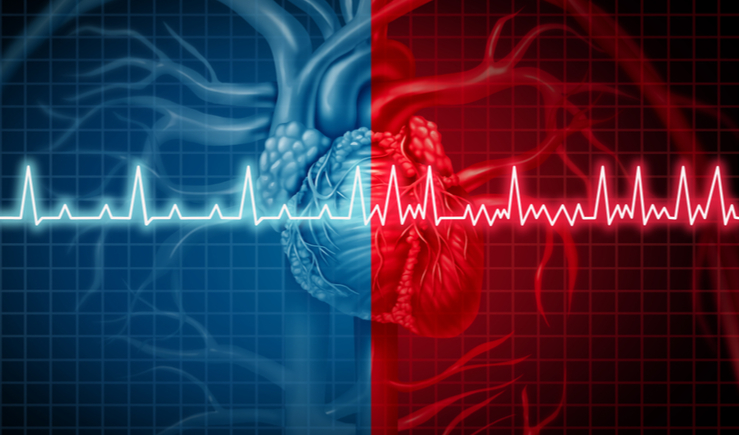Diet soda drinkers are being warned about the link between the beverages and atrial fibrillation (AFib). According to Dr. Joseph Mercola, “Artificial sweeteners cause DNA damage in, and interfere with, normal activity in gut bacteria, making it difficult for beneficial bacteria to communicate, grow and reproduce. Destruction of healthy bacteria opens the door to increased growth of unfriendly microorganisms that cause health problems.” He explores the links between artificial sweeteners and AFib at Mercola.com, writing:
Research1 published in the American Heart Association journal Circulation: Arrhythmia and Electrophysiology found an association between drinking sweetened beverages and atrial fibrillation. Atrial fibrillation, also called AFib, is an abnormal and often rapid heartbeat that occurs when the upper chambers in the heart (atria) beat out of sync with the lower chambers (ventricles).2
It’s a common symptom in people with heart failure or heart disease and one of the most common arrhythmias (irregular heartbeats) that affects more than 2 million U.S. adults. AFib can sometimes go away on its own, but it also can become more frequent with longer-lasting episodes that can lead to serious complications like stroke and heart failure.
The symptoms of AFib can look like other health problems, which is why it is crucial to understand the condition and receive the correct diagnosis. For example, the declining ability to pump blood to the lungs and elsewhere in the body can lead to lightheadedness, dizziness and fatigue, which are symptoms that can be attributed to several other health conditions.
AFib may make you feel like your heart has skipped a beat or is fluttering or pounding. Your risk increases with age, but lifestyle and dietary factors can also increase your risk, which is exactly what researchers found when they sought to determine if there was an association between drinking sweetened beverages and AFib.
Diet and Regular Soda Raises Heart Risk
The researchers acknowledged3 that a past association between sweetened beverages and cardiometabolic disease has been reported, but an association with atrial fibrillation was unclear. The study enrolled 201,856 participants who did not have AFib at the time the study began, had completed a 24-hour diet questionnaire and had genetic data available.Research has found a genetic component to AFib. Genome-wide studies identified 140 genetic loci that are linked to the development of AFib.4 However, while genetic implications put an individual at higher risk of developing the condition, it is not a guarantee that the condition will develop.
There was a median follow-up of 9.9 years, during which 9,362 incidents of AFib were documented.5 The researchers evaluated the consumption of sugar-sweetened beverages (SSB), artificially sweetened beverages (ASB) and pure fruit juice. The data showed that people who drank greater than 2 liters per week of sugar-sweetened or artificially sweetened beverages increased their risk of AFib, with those who drank artificially sweetened beverages experiencing a higher risk.
The highest risk was observed in people who had a genetic risk and consumed more than 2 liters of artificially sweetened beverages, while the lowest risk was observed in those who had a low genetic risk and consumed less than 1 liter of pure juice per week.
The association between sweetened beverages and AFib persisted even after adjustments were made for genetic susceptibility to the heart condition. “This study does not demonstrate that consumption of SSB and ASB alters AF risk but rather that the consumption of SSB and ASB may predict AF risk beyond traditional risk factors,” the researchers concluded.6
Many people reach for an artificially sweetened beverage advertising zero calories and sugar because they know other sodas and juices contain an alarming amount of both. Drinking a beverage advertised with zero calories and sugar can feel like you’re making better choices but as these researchers have demonstrated, artificial sweeteners may cause more harm than good.
While the data from the current study demonstrates a higher risk of consuming ASB, a press release from the American Heart Association about the study also noted that people who drink 2 liters of SSB each week increase their risk of AFib by 10%.7 Kris-Etherton, an emeritus professor of nutritional sciences at Penn State University, commented on the results of the study from China, saying:
“This is the first study to report an association between no- and low-calorie sweeteners and also sugar-sweetened beverages and increased risk of atrial fibrillation.
While there is robust evidence about the adverse effects of sugar-sweetened beverages and cardiovascular disease risk, there is less evidence about adverse health consequences of artificial sweeteners. In the meantime, water is the best choice, and, based on this study, no- and low-calorie sweetened beverages should be limited or avoided.”
Read more here.
If you’re willing to fight for Main Street America, click here to sign up for my free weekly email.





